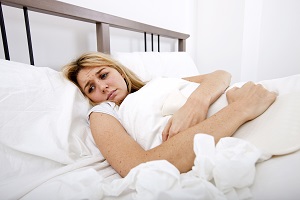One of the most fundamental aspects of feng shui is water.
This is with reference to water as a carrier of energy, or chi. And does not refer to the elemental characteristics of water as one of the 5 elements.
While water as one of the 5 basic elements has a prominent role in feng shui practice, this discussion is about the flow of energy which is described as water.
In feng shui water theory, water is like a vehicle that energy travels with.
This means that energy flows wherever water flows and comes to a standstill when water stagnates. And when water flow is too rapid, energy becomes unfavorable (sha chi) and can also disperse.
Water that flows in a straight line can also be a source of negative energy.
The ideal characteristics of water that brings positive energy would be clean and slow moving. A common word used to describe this is meandering.
Even though a home owner might be contented that the water flow around the house does not have a negative impact on the feng shui at home, harnessing the flow of water around a property can bring about abundant wealth luck and happiness.
The principles of water theory state that in order to tap onto the power of feng shui for a positive impact on life, the 3 main characteristics of water flow around the house are:
- Yin or yang water
- Point of entrance
- Point of exit
However, it is critical to take note that feng shui is all about balance. Excessive use of water theory can “drown” a house.
Therefore, the goal of any homeowner or feng shui practitioner should be to seek balance and harmony.
If you have yet to realize, the water flow we are talking about concerns the external environment outside a house or property of any sort.
And when water theory is concerned in feng shui, only water sources that are visible are taken into account. This means that any underground channel of water flow should be disregarded from an audit.
Types of water sources
During ancient times, water movement is mainly from natural sources such as rivers, streams, lakes, etc.

These days, these things are almost nowhere to be seen in modern residential areas.
With the absence of natural water, modern feng shui practices often advocate the use of artificially created water sources like fountains, swimming pools, drains, ponds, etc.
While believed to be not as potent as natural water, artificial water sources serves the purpose of water theory nevertheless in carrying energy around the vicinity of a house.
When there is a lack of natural or artificial water sources, then virtual water will be taken into consideration.
In fact as dwellings become more and more urban in landscape, virtual water has slowly become the primary source of water for feng shui of most modern houses and apartments in cities.
Virtual water takes the form of traffic flow, crossroad, T-junctions, highways, etc.
If you observe the flow of traffic in a city from a high floor of a tall building, it is easy to appreciate how the traffic flow influences the flow of energy.
Virtual water is therefore a very able alternative to natural water.
To recap, the 3 sources of water are:
- Natural water
- Artificial water
- Virtual water
While classical text only describes feng shui water as natural sources, modern practices have incorporated the other two.
And it is widely accepted that they are capable substitutes to natural sources of water.
Yin and yang water
The nature of water flow around a house can be classified as yin or yang.
While the water that is within view from main front door or facing of a house is of significant importance, whether it is yin or yang water should not be ignored.
When looking out from the front door, water that flows from left to right is yang water, while a right to left movement is regarded as yin water.
In general, most people agree that yang water would be more favorable to a home’s feng shui than yin water. But in some circumstances, yin water would be more favorable to female homeowners.
Water flow directions
Just like there are various schools of thought in feng shui, there are also a variety of water theories in practice.
The most prominent of which are:
- Castle gate water theory (城门诀)
- 8 Killings water theory (八煞黄泉水)
- 8 Palace water theory (八宫黄泉水)
- 3 combination water theory (三合水法)
- Death elimination water theory (消亡水)
All the above mentioned water theories consist of principles stating favorable water entry points and exit points. Including unfavorable direction flows that causes bad feng shui.
As it is impossible for me to know how water flows around your specific property, just know that in general, water that flows in from the front of the house and exits from the back brings auspicious good luck.
While water entering from the back and exiting from the front brings bad luck.
Drains configured around a house should not be overlooked.
When eternal forces dictating the water flow outside the house is beyond your control, at least the drainage around the house is within your influence.
When the water flow of drains is properly configured according to water theories, it can do a lot in harvesting auspicious energy.
Since in classical feng shui, the main entrance to the house is where the main source of energy enters, whether it’s favorable to unfavorable, remember that actions to take the directions of the water flow should be done with the main entrance in mind.
Conclusion
Water theory can be simple to understand, but can be complicated to implement.
If environmental factors prevent you from making changes to water flow so that it brings good luck, then do consider taking a good look at your drainage around the house and invest in adjusting their flow to create auspicious water flow.
If that is also impossible or too complex to implement, the final play in your book might be to explore the possibility of relocating the main entrance.
A change in the main entrance direction can dramatically change the water flow directions that are favorable and unfavorable to the feng shui of a house.
But do be careful as this can potentially change the entire birth chart of the house as well.
You would be elated if it becomes better, but might face adversity if it changes for the worse.















